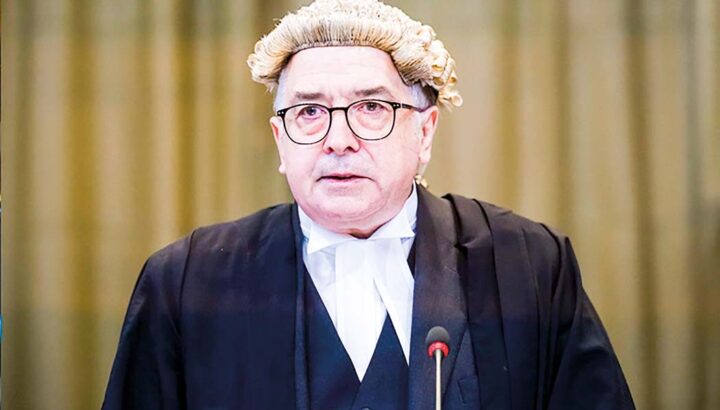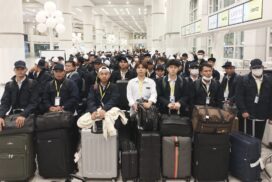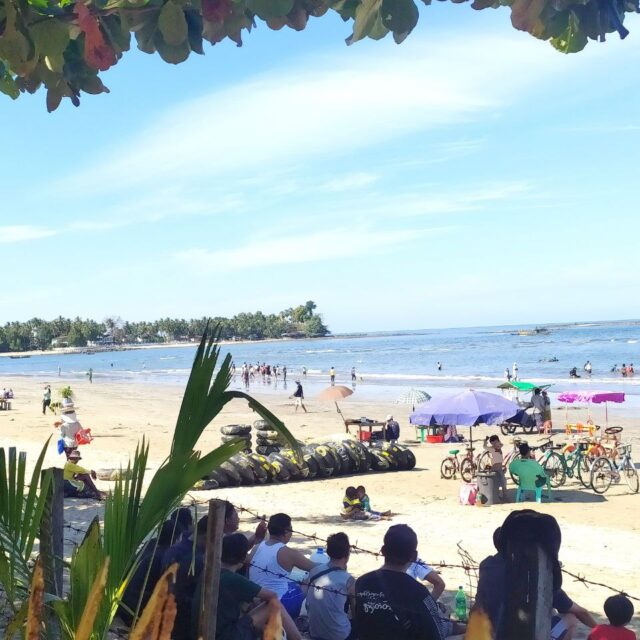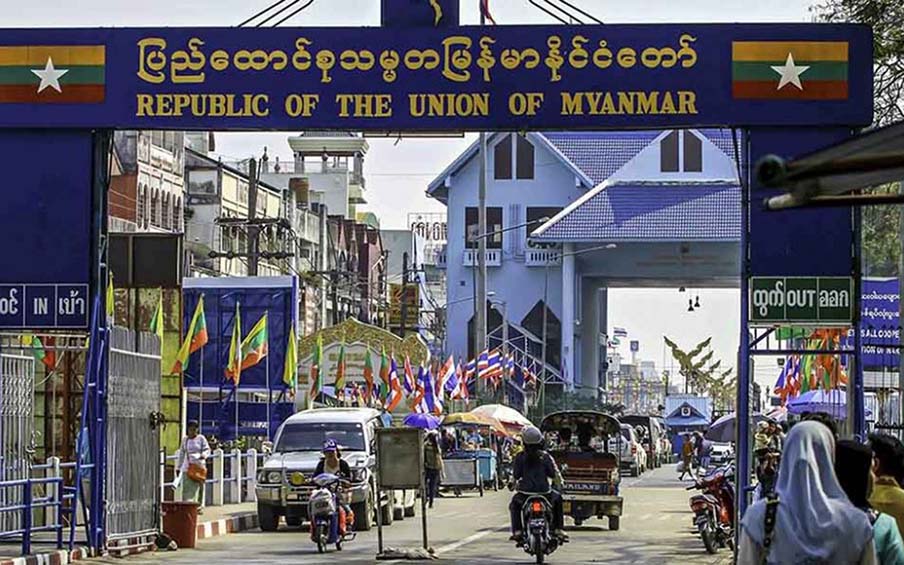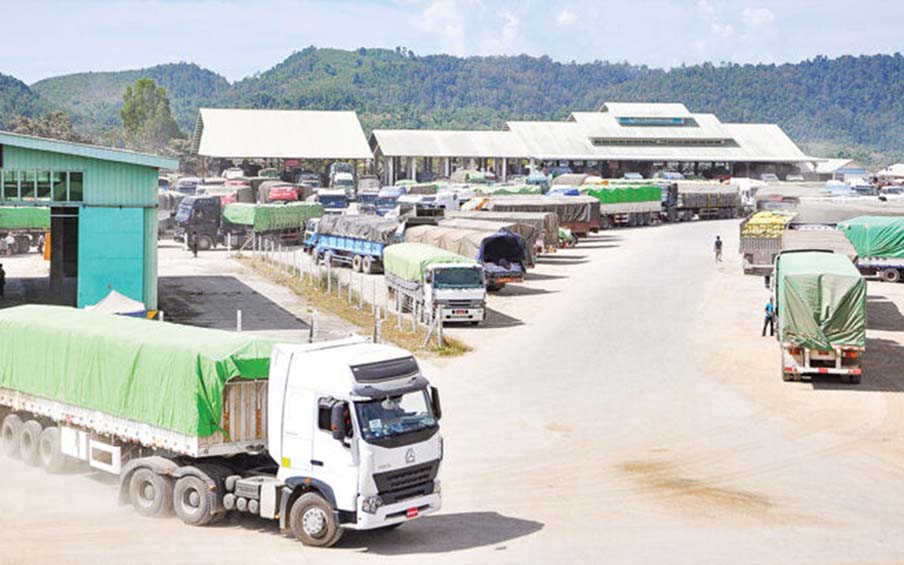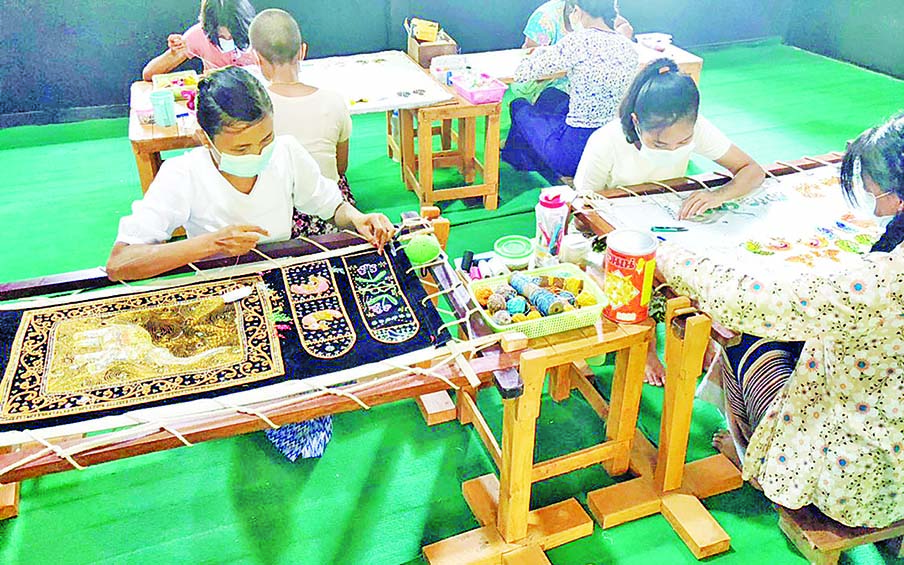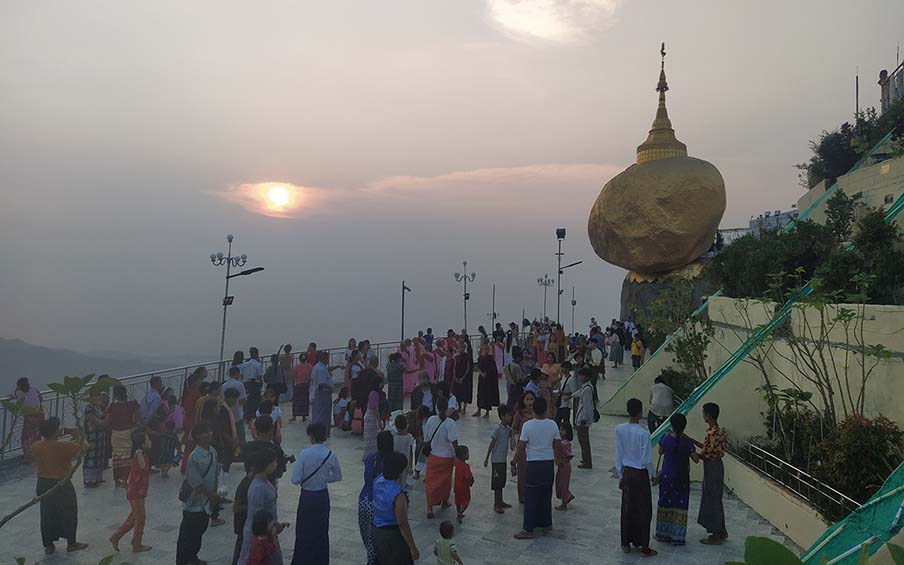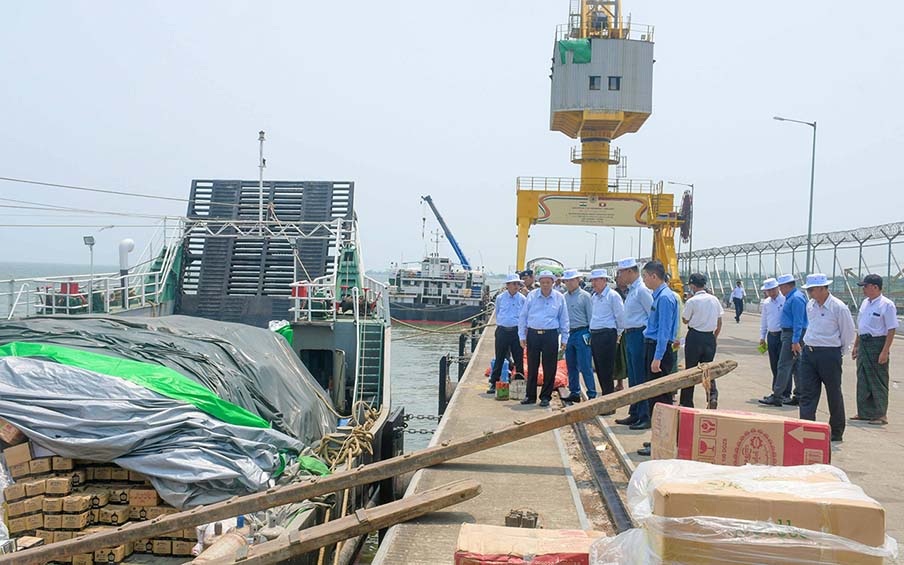Introduction
Madam President, Mr. Vice-President, Members of the Court,
1. The parties were reminded at the end of the first round that there is no need in the second round to repeat any statements already made.1
2. In this second round, I will first present arguments in respect of the first and fourth preliminary objections. Professor Talmon will then address the second preliminary objection, followed by Professor Kolb who will deal with the third. The Agent for the Republic of the Union of Myanmar will then close Myanmar’s second round.
General matters
3. However, before turning to the individual preliminary objections, I will first address three general matters arising out of The Gambia’s first round of oral argument.
4. The first matter is this. The Gambia acknowledged several times during the first round that the Provisional Measures Order2 considered issues of jurisdiction and admissibility only on a prima facie basis.3 That is correct. In that Order, the Court expressly observes that at the provisional measures stage, it “need not satisfy itself in a definitive manner that it has jurisdiction as regards the merits of the case” [« n’a pas besoin de s’assurer de manière définitive qu’elle a compétence quant au fond de l’affaire »].4 Issues of admissibility are dealt with in the Order on the same prima facie basis.5
5. Thus, paragraph 85 of the Provisional Measures Order states unequivocally that that Order “in no way prejudges the question of the jurisdiction of the Court … and admissibility of the Application” [« ne préjuge en rien la question de sa compétence … ni aucune question relative à la recevabilité de la requête … »], and that that Order “leaves unaffected the right of … Myanmar to submit arguments and evidence in respect of those questions” [« laisse intact le droit … du Myanmar de faire valoir leurs moyens et éléments de preuve à cet égard »]. The Court itself thereby clearly acknowledges the right of Myanmar to request that the same issues of jurisdiction and admissibility be determined on a definitive basis at a subsequent preliminary objections phase.
6. Despite this clear indication from the Court, statements were made by The Gambia in the first round suggesting that the four preliminary objections have somehow already been decided by the Court at the provisional measures stage, and that the Court’s decision should not change, given that nothing has changed in the meantime.6
7. However, if the preliminary objections have not been prejudged in any way, as paragraph 85 of the Provisional Measures Order makes clear, then in the present phase of the proceedings, the preliminary objections must be subject to a full de novo consideration, in the light of the comprehensive arguments and evidence of the parties. Not only is the Provisional Measures Order not decisive, it is not even a starting point. At this stage, it is no longer material at all to the particular issues now under consideration.
8. The second matter is this. The preliminary objections are entirely independent of the merits of the case. Despite this, during the first round, counsel for The Gambia have made various statements which pertain to The Gambia’s substantive claim in the case, or pertain to claims of other events in Myanmar unrelated to the preliminary objections.7 These statements of The Gambia obviously call for no reply at all in the context of the present hearing, which is confined to the preliminary objections, and Myanmar’s failure to address these statements cannot be considered as any kind of concession.
9. The third matter is this. The preliminary objections fall to be decided in accordance with the law governing the jurisdiction of the Court and the admissibility of cases. This is so self-evident that it should not need to be stated. However, I do state it because The Gambia has made statements that possibly imply otherwise. During the first round, The Gambia made statements to the effect, for instance, that only the Court has any influence over Myanmar,8 that if the Court does not exercise jurisdiction Myanmar will be accountable to no one,9 that maintaining the existing provisional measures is essential,10 that the Court bears a responsibility for upholding the Genocide Convention,11 and that the preliminary objections are in conflict with the aims of that Convention.12
10. Given that the preliminary objections are independent of the merits, it is difficult to see why these statements were made by The Gambia at this stage, unless The Gambia is suggesting that the Court should modify the law of jurisdiction and admissibility in its application to this case because of these contended matters. It is apparently suggested that in the case of the Genocide Convention, preliminary objections should be regarded as “concocted technicalities”.13 Any such suggestion, if it is being made, should not be accepted. The Court cannot in any individual case expand its jurisdiction, or expand the scope of admissibility of cases, simply because it is persuaded that it has a useful role to play in a particular situation. These statements of The Gambia are therefore not relevant to this hearing, and counsel for Myanmar do not need to address them.
11. The written preliminary objections acknowledge the importance of the Genocide Convention.14 However, no matter how important it may be, it remains subject to general rules of international law governing the jurisdiction of the Court and the admissibility of cases,15 as well as for instance rules relating to reservations to treaties.16 It is trite law that the Court does not have jurisdiction over every alleged breach of international law by every State in every situation. The Court must determine whether as a matter of law it has jurisdiction and the case is admissible, not whether it would be desirable for that to be the case.
First preliminary objection
Madam President, Members of the Court,
12. With that, I turn to the first preliminary objection. As I noted in the first round, this involves a main question of fact and a main question of law.
13. As to the question of fact, in the first round The Gambia provided no further particulars of its dealings with the OIC and other member States, and certainly no further evidence of these matters. It did, however, make certain further general statements, unsupported by evidence, such as that “The Gambia assumed a leadership role”,17 and that it was The Gambia that conceived of the idea of bringing this case.18 These statements cannot be treated as facts or evidence.
14. The Gambia refers dismissively to the evidence before the Court as “an eclectic variety of websites, articles, tweets and press releases”.19 However, key items of this evidence are material issued by the OIC, the United Nations, the Government of The Gambia or its representatives, and other OIC member States, as well as media reports of statements of Governments.20 It remains the case that The Gambia has not denied the specific contents of any of this material.
15. Indeed, The Gambia has now expressly confirmed that its decision to bring this case was taken by its Cabinet only in July 2019, at which the Cabinet endorsed a proposal of the OIC.21
16. The Gambia has also not denied, and indeed, has impliedly accepted, the evidence relating to the funding arrangements for the case.22
17. The Gambia says that Myanmar has “glided over the evidence that matters”.23 This “evidence that matters” is said to include the opening statement of The Gambia’s Agent at the provisional measures hearing.24 However, the Agent was not appearing as a witness, and that opening statement cannot be treated as evidence. In any event, that opening statement gives no additional particulars of the dealings between The Gambia and the OIC and its other member States leading up to these proceedings. It merely describes a visit that the Agent made to camps in Bangladesh in early 2018 as part of an OIC delegation.25
18. The only other “evidence that matters” identified by The Gambia are the 25 September 2018 statement of the President of The Gambia to the General Assembly, and the 11 October 2019 Note Verbale.26 The Gambia appears to argue that this evidence shows that The Gambia took actions itself, acting in its own name, and doing so voluntarily.27
19. However, that is not to the point. In any case where a State acts on behalf of a third party as its proxy, the proxy will typically itself undertake the relevant actions itself in its own name, and will almost invariably do so voluntarily. There may be any number of reasons why it agrees voluntarily to act on behalf of a third party as its proxy, but as The Gambia says, motivation is irrelevant to issues of jurisdiction. The question is therefore not whether the applicant State is voluntarily undertaking actions itself, in its own name. The question is whether the voluntary actions that it is undertaking itself in its own name are in fact being undertaken on behalf of a third party as the third party’s proxy. That is a question of fact to be decided on the evidence.
20. In short, The Gambia’s first round arguments take the facts no further. The state of the evidence before the Court is the same as it was before the first round.
21. Contrary to what The Gambia suggests, it is not Myanmar’s case that The Gambia is the real applicant by reason alone that it receives support from others.28 Myanmar contends that the OIC is the real applicant by virtue of all of the circumstances that have previously been set out by Myanmar. I do not repeat all the details. Essentially, the evidence shows that the proposal to bring this case was made by the OIC Committee and endorsed by the OIC Council of Foreign Ministers, after which the Islamic Summit decided that the OIC Committee should bring the case on behalf of the OIC. It was only afterwards that the OIC then proposed to The Gambia that it be the applicant State and The Gambia agreed. That looks more like The Gambia providing assistance to the OIC than like the OIC providing assistance to The Gambia.
22. I move on then to the question of law. It is common ground that the issue of proxy States has never arisen before.29 There are two points made in reply.
23. First, contrary to what The Gambia suggests, Article 35, paragraph 1, of the Statute, is not fatal to Myanmar’s argument.30 It has no impact on Myanmar’s arguments at all.
24. This provision states that “[t]he Court shall be open to the States parties to the present Statute” [« La Court est ouverte aux Etats parties au présent Statut »].
25. Apart from anything else, this does not in any way qualify, or create an exception to, Article 34, paragraph 1, which provides that only States may be parties in cases before the Court. Additionally, Article 35, paragraph 1, does not suggest that the Court is “open” to international organizations or other entities that are not States. Furthermore, the mere fact that a State is a party to the Statute of the Court, and that the Court is therefore “open” to it pursuant to Article 35, paragraph 1, does not mean that the Court will have jurisdiction over any case brought by that State, or that any case brought by that State will be admissible.
26. The arguments previously presented in relation to Article 34, paragraph 1, apply equally to Article 35, paragraph 1, and the latter provision takes matters no further. The academic texts relied on by The Gambia in this respect31 were not addressing the issue now before the Court, and are not inconsistent with Myanmar’s arguments.
27. Secondly, The Gambia conflates two separate issues, namely the motivation of a State for bringing proceedings, and the question of whether the applicant State is in fact bringing proceedings on behalf of another State or entity. The Gambia argues that if the applicant brings proceedings because another State or entity wants it to, that is simply the applicant State’s motivation for doing so, and that motivation is irrelevant to jurisdiction.32 This is incorrect. I will not repeat arguments I have already made, indicating how the use of proxy States by States and other entities not entitled to bring a case would be contrary to principles of reciprocity, good faith and effectiveness.33 The bringing of a case as proxy for a third party engages principles and issues going well beyond the principle that motivation is irrelevant to jurisdiction. This distinction is far from “artificial”.34
Fourth preliminary objection
Madam President, Members of the Court,
28. I move on to the fourth preliminary objection.
29. As to the legal principles, Myanmar has not abandoned anything stated in the written preliminary objections.35 I note that some of the definitions of a “dispute” found in the case law36 may in fact be worded somewhat too broadly to reflect the actual principles applicable to determine if there is a dispute.37 Myanmar contends that the correct principles are those set out in its pleadings and oral argument.
30. I have already explained why the requirement for both parties to be aware of the other’s position is reflected in the Marshall Islands cases.38 I have also already explained why, contrary to what is claimed by The Gambia,39 this requirement would not give the respondent a “silent veto” over the bringing of cases before this Court.40
31. Contrary to what The Gambia suggests, I did not say that the parties must enter into negotiations before a case is brought before the Court.41 Rather, I said that both parties must be aware of each other’s position. Two parties can be aware of each other’s opposing positions without any negotiations between them taking place or having yet taken place, and indeed, this will be a common situation. I did not say that the parties must attempt friendly settlement before going to Court.42 Rather, I said that because the Court is an alternative to the direct and friendly settlement of disputes, there will not be a dispute for purposes of Court proceedings unless there is a dispute that could be the subject of friendly settlement, and for this both parties would need to be aware of the other’s views.43
32. Contrary to what The Gambia suggests, I did not say that an applicant must articulate its claims in such detail that it would effectively have to share a draft of the application with the potential respondent.44 Rather, I made clear that only a minimum degree of particularity is required.45
33. Contrary to what The Gambia apparently seems to suggest, the Court’s case law does not indicate that there is any defined time after which silence by a respondent can be treated as positive opposition.46 Clearly, the question whether a response is called for at all will depend on the individual facts of a particular case. If it is, the maximum reasonable length of time for a response will vary, depending on the circumstances of the particular case. I did not say that Myanmar was entitled to an indefinite or unlimited amount of time to respond. I said that the Note Verbale did not call for a response at all, but that even if it did, a reasonable time for a response would have been more than a month.
34. For the reasons given earlier in the written and oral arguments, matters relied on by The Gambia as establishing the existence of a dispute, apart from the 11 October 2019 Note Verbale, could not possibly establish the existence of a dispute.
35. As to the Note Verbale, it is indeed correct that the Note Verbale did not state any facts. It merely referred to the findings in the FFM report, and to an OIC resolution. It is also indeed correct that there is no suggestion that The Gambia had access to the FFM’s primary evidence on which the report was based, such as the witness interviews that it took. For all the reasons given earlier in the written and oral arguments, this Note Verbale was not a legal claim that called for a response.
36. The mere fact that The Gambia announced in the General Assembly on 26 September 2019, prior to sending the Note Verbale on 11 October 2019, that it intended to bring a case before this Court47 does not mean that the Note Verbale should be considered to satisfy the prior dispute requirement if it otherwise would not.48 Indeed, once The Gambia announced publicly on 26 September 2019 that it intended to bring a case before this Court, the failure of the Note Verbale to mention this intention gave rise to an even stronger inference that it was not a document that itself was raising a legal claim, since after 26 September 2019 there would have been an even stronger expectation that the Note Verbale would refer to this intention if it was a legal claim.
Madam President, Members of the Court,
37. That concludes my arguments on the first and fourth preliminary objections. I would invite you now to call on Professor Talmon, to address the second preliminary objection.

